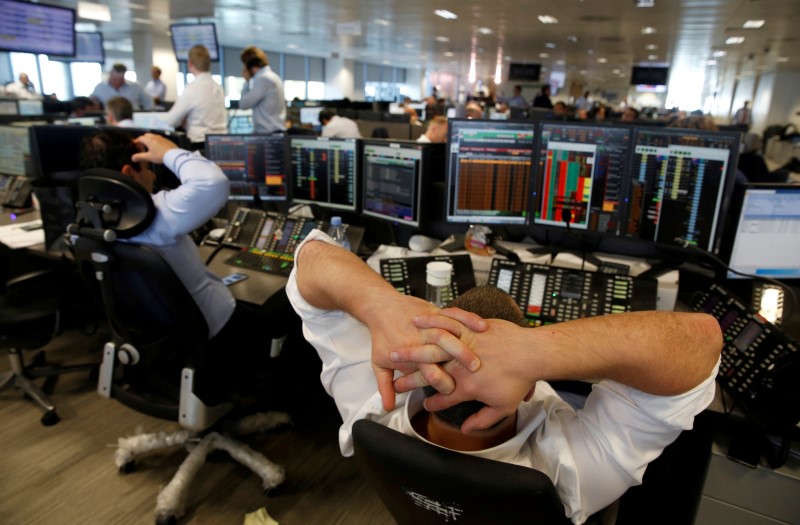LONDON (Reuters) - The value of UK funds' assets under management has dropped by more than $40 billion (£30 billion) in the three weeks since Britain's vote to leave the EU, largely due to the plunge in the pound, fund flows data provider EPFR said on Friday.
Losses were concentrated in equity and money market funds, and reflected the combined impact of lower asset prices, net outflows and the fall in sterling's exchange rate since the June 23 referendum on European Union membership.
The fall to $468 billion of assets under management from $510 billion immediately before the vote marks a drop of 8.2 percent, roughly the scale of the depreciation in sterling over the period. EPFR said roughly four-fifths of the decline in assets was due to the currency fall.
Britain's benchmark FTSE 100 (FTSE) is 5 percent higher than it was on June 23, bouncing back sharply from the initial fall, while the broader FTSE 250 index (FTMC) is still 4 percent lower.
The FTSE 100 is influenced more by global factors, with around 70 percent of earnings derived from overseas, so benefiting from the fall in sterling. The FTSE 250 is much more sensitive to the domestic economy, which most analysts expect to weaken following the Brexit vote.
UK property funds have been hit particularly hard since the referendum. More than 18 billion pounds in property funds aimed at retail investors was frozen last week and the value of many funds was cut following a tide of redemption requests.
The broad recovery in British equity markets from the Brexit troughs, however, has helped lift UK funds' total AUM up from the low of $440 billion on June 27, EPFR said.
Figures compiled by Bank of America (NYSE:BAC) Merrill Lynch show that net outflows from UK equity funds in the last three weeks have totalled $2.6 billion, including the $1.1 billion outflow in the week ending July 6 which the largest since January last year.
Despite the rebound in UK stocks, analysts at French bank Societe Generale (PA:SOGN) this week warned that the outlook for UK assets remains challenging.
"The conditions and consequences of Brexit remain unclear," they said in a note on Thursday, adding that sterling could fall as low as $1.20 and recommending that investors steer clear of UK banks.

"We stick to a strong negative bias on the UK domestic economy by being short FTSE 250/long FTSE 100," they wrote.